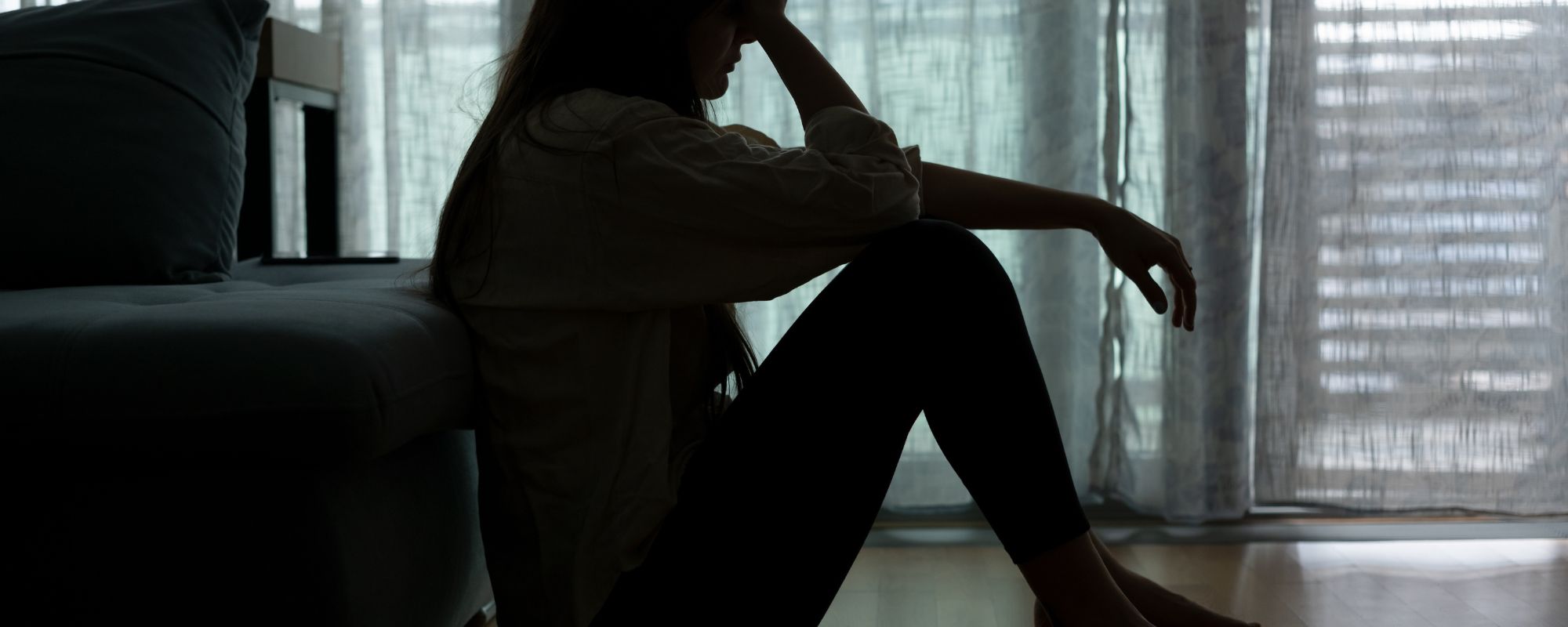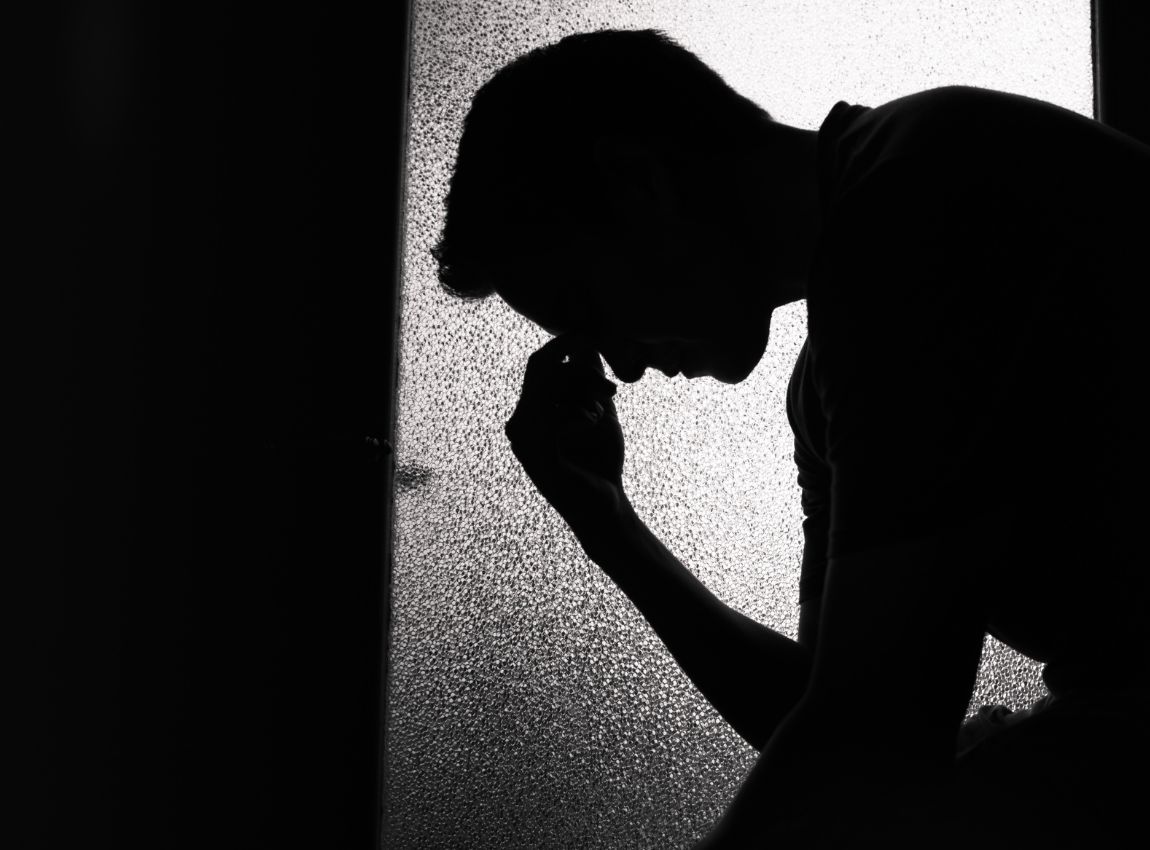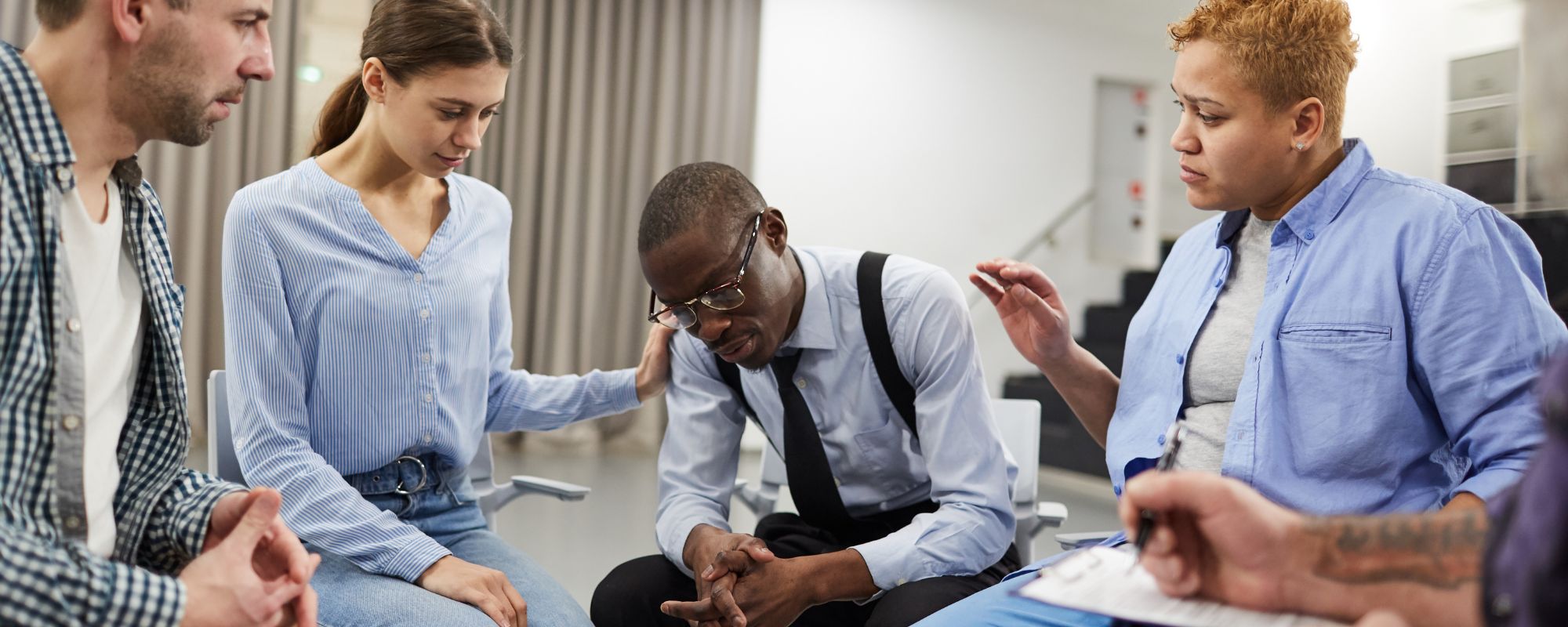Regular talk therapy appointments can help lead you right up to the door of recovery for combating depression, but the only way to unlock it and get to the other side is with the work you apply outside of treatment.
As you move through the moments of daily life, how do you deal with the negative thoughts and emotions so stubbornly persistent with a depressive disorder, or face the triggers that might arise at work, school or home, or around people, places and situations?
The right coping skills for depression can bring sunlight when your days feels like a constant gray cloud. They can instill some optimism when you feel hopeless. And they can help you manage your symptoms on days you’re feeling particularly overwhelmed.
If you’re in therapy for depression or thinking about pursuing treatment, here are a few healthy coping skills for depression your therapist may recommend.
What Is Depression?
We all have moments when we feel sad or down. But depression is more than just going through a rough patch. Picture living life looking through a lens that colors your perceptions of the world, causing chronic feelings of hopelessness, or losing interest in being with the people or engaging in activities that once brought you joy.
Depressive disorders are some of the most common mental health conditions; according to a 2023 study, almost three in 10 adults will be diagnosed with depression during their lives. According to the Anxiety & Depression Association of America (ADAA), 264 million people currently live with depression.
Depressive Disorders Explained
Depression is an umbrella term that includes different types of depressive disorders, each with different causes and symptoms:
Major Depressive Disorder (MDD)
Major depressive disorder, or MDD, is the most common form of depression that carries the standard symptoms that most people associate with depression. An all-consuming, overwhelming sense of sadness and low mood typify MDD, along with losing pleasure in most activities, notes the ADAA.
With MDD, you might also feel worthless or unreasonably guilty for no reason, feel low energy, sleep too little or too much, have trouble thinking, concentrating or being decisive, lose your appetite and have recurring thoughts of death or suicidal ideation.
According to the Cleveland Clinic, you need to experience these symptoms most days for two weeks to qualify for a MDD diagnosis. The clinic also notes that MDD tends to cross over with other mental health issues, such as substance use disorder, panic disorder, social anxiety or obsessive-compulsive disorder.
Seasonal Affective Disorder (SAD)
Seasonal Affective Disorder can leave you feeling so sad to the point of feeling beside yourself, a major type of depression triggered by the change of seasons. SAD tends to begin for most in fall and lasts through winter when the days are shorter, there’s less sunlight and the weather is colder or more inclement.
If you have SAD (like 5% of the population does, notes the Cleveland Clinic), you may feel daily, lingering sadness, anxiety, feeling tired and lacking energy, irritability or agitation, oversleeping, a sense of worthlessness or even thoughts of suicide.
The clinic notes that SAD can also affect some people in the summertime, and a less severe version known as the winter blues also affects people with SAD.
Bipolar Disorder
Also known as manic depression, bipolar disorder is in a class of mood disorders where your mood, energy levels, thoughts and behaviors may vacillate intensely — sometimes for days, weeks or months at a time. With bipolar disorder, you experience at least one manic episode during your life.
Mania, notes the Cleveland Clinic, is an abnormally or irregularly heightened or irritable demeanor, with quickly changing emotions, mental state, behavior, and energy.
The second half of bipolar disorder is depressive episodes similar to MDD, including a loss of interest in activities you enjoyed, fatigue, appetite changes and chronic, intense sadness. Bipolar I disorder is the most common but bipolar II disorder is also found in many people, with hypomania (a less severe form of mania) replacing manic episodes. There’s also cyclothymia, marked by hypomania and a depressive condition.
Persistent Depressive Disorder (PDD)
Persistent depressive disorder, or PDD, was formerly called dysthymia or dysthymic disorder, but its current title more accurately describes the condition, involving a chronic, persistent, low-level sadness that can linger for years.
A longer-lasting form of MDD, with symptoms including fatigue, feelings of low self-esteem, isolation or hopelessness, an inability to concentrate, and minimal energy, about 1.5% of people have experienced PDD within the last year.
The Cleveland Clinic notes that while it’s not fully understood what causes PDD, research shows that atypical neurological connections throughout the brain that prevent cells from properly communicating with each other are one likely explanation.
Looking for quality treatment for substance abuse and mental health that’s also affordable? Aliya Health Group's treatment facilities accept most major insurance providers. Get a free insurance benefits check now!
Check Your CoverageWhat Are Coping Skills for Depression?
The first step to coping with depression is knowing when it’s time to seek help if you’re beginning to recognize some of the symptoms we’ve listed above.
Once you’ve begun treatment, like weekly sessions with a counselor or psychologist, your therapist may begin working with you to develop some depression coping skills — small actions you can take to reduce the intensity of depressive feelings and counteract any negative thoughts you may have by reframing them with a more positive outlook.
Look at coping skills for depression as a set of pragmatic tools, strategies, and techniques you can apply in the moment, whenever a depressive episode is coming on, or if you’ve been having a particularly challenging day. Others may call for you to set aside dedicated time each day, a discipline that can help you regain a sense of control over your depression.
Depression Coping Skills That Can Help
The best coping skills for depression are ones that have been effective time and again in helping people coping with severe depression, but also ones that resonate with you.
For example, during therapy, your therapist will offer a list of coping skills for depression to see which ones interest you the most. Healthy coping skills for depression that appeal to you are those you’re most likely to stick with, like starting a new diet or exercise regimen. When you’re depressed, your brain often gets stuck in negative thinking patterns that can be difficult to break away from. But the right depression coping skills can help you recognize them and shift your thoughts and behaviors in healthier directions.
Here are some depression coping skills that therapists frequently recommend:
Behavioral Activation
Think about how you used to feel about the activities that once brought you joy. You may have enjoyed running or gardening, creating art or another meaningful hobby, efforts that raise your endorphin levels and provide a sense of satisfaction, accomplishment and well-being.
Behavioral activation seeks to help you recapture these sentiments, a valuable depression coping strategy to improve your emotional state by engaging in positive, rewarding activities and behaviors — some of which you may have drifted from due to a depressive disorder.
Research shows that depression is often linked to inactivity, causing one to withdraw from the world. But behavioral activation is about intentionally choosing activities that are meaningful to you, even if your motivation is low. This is hoped to create positive reinforcement to make you feel better about yourself.
You might start with something as simple as going for a walk outside, listening to music, chatting with a friend on the phone, cooking a nice meal for yourself or spending time with a pet. Over time, watch how these small actions can lead to big improvements in your mood and energy levels normally dampened by depression.
Mindfulness and Grounding Techniques
Depression can be particularly skillful at monopolizing your thoughts, creating a negative mental narrative that truly feels hard to break. Even in the best moments when struggling with depression, feeling mindful and grounded are the last things you might feel.
True mindfulness involves bringing your attention to the present moment, without judgment. In being mindful of your mental state, you can harness more control over and choose to think differently, primarily because it interrupts the tendency to ruminate — dwelling on negative thoughts and circumstances — common to depression.
Some of the best coping skills for depression rooted in mindfulness and grounding, your therapist might recommend include:
- Meditation: By being still for just a few minutes a day, you can notice clearly when negative thoughts arise, acknowledge them, let them go and replace them with positive ones. You might do this as a sitting or walking meditation, or as a body scan meditation, where you’ll lie on your back and be mindful of sensations in your body, good and bad.
- The Five Senses (or 5-4-3-2-1) exercise: Take a piece of paper and write down five things you can see, four you can touch, three you can hear, two you can smell and one you can taste. “This exercise helps bring you back to the here and now,” says the Depression and Bipolar Support Alliance (DBSA).
- Breathing techniques: Following your breath is another type of meditation to keep you grounded in the present moment, in the now. The DBSA recommends placing one hand on your stomach and the other on your chest; while breathing in, the former hand should rise while the other stays still. Breathe for five seconds, hold for five and exhale slowly.
- Get physically active: The simple act of moving your body can do wonders for releasing endorphins and feel-good hormones that depression can sap. A walk around the block, doing jumping jacks, or graduating to join a gym and developing a dedicated fitness routine are actually mindfulness exercises because they enable you to pay attention to your body with each movement.
Journaling
Writing down your thoughts, feelings and experiences throughout the day can be a powerful, transparent way to process your emotions when coping with depression, especially if you feel depressed and it’s difficult for you to verbalize them during talk therapy.
Journal whatever comes to your mind. Write about how you’re feeling right now and why you’re feeling that way. Document something that went well today. How did it affect your mood? Putting it down on paper can help you process complex emotions and begin to identify patterns in your thoughts and moods. Things begin to fall into place when you review your journal, which can be invaluable to your progress in therapy.
There are also no rules for journaling. Write or draw whatever comes to your mind and what feels right in the moment. It’s for you to make sense of your thoughts and feelings and doesn’t need to follow a certain structure. Your journal is private, and there’s no requirement to share it with anyone.
Journaling can become one of your go-to healthy coping skills for depression because it’s accessible anytime. Try to keep a pen and paper ready at all times in case inspiration strikes you, or you can try journaling on your smartphone.
Social Support
The value of having a strong family or social network can’t be understated or underestimated. Support from people who love and care about you can speak volumes when you’re coping with depression, since one symptom of depressive disorders is the feeling of wanting to withdraw or isolate yourself from others.
Your therapist may encourage you to reach out to friends, family or even support groups — shoulders to lean on and sympathetic ears to listen to when you’re feeling down. Sharing your experiences with a close friend or relative can foster connection and lessen loneliness, reminding you that you’re not alone in this world. Even a simple text or phone call can make a difference.
If you’re not ready to talk openly about your feelings just yet, spending time with others in low-pressure settings — such as watching a movie together or taking a walk — can help you feel less alone. Always remember that seeking support is a sign of strength, not weakness.
Get confidential help from our addiction and mental health treatment facilities located across the United States. Call to join one of our quality programs today!
Speak With Our Admissions TeamProfessional Mental Health Treatment for Depression
Coping skills for depression give you the power to take control of what you think and how you feel and behave. And the good news is that any of the strategies above can be done anytime, anywhere, even if you are past depression symptoms.
But the groundwork for coping with depression truly begins through professional therapy. A treatment center opens up a safe space to focus fully on getting to the heart of a depressive disorder. There, several different types of treatment are available:
Psychotherapy for Depression
Here are some of the most common evidence-based psychotherapies used by depression therapists at mental health treatment centers:
Cognitive-Behavioral Therapy (CBT)
Known as CBT for short, Cognitive-Behavioral Therapy is a type of talk therapy that aims to reconcile how unhelpful thought processes (your cognition) are linked to unhelpful behaviors, and by exploring them through therapy and coping skills for depression, you can reframe your mental map into a more positive narrative.
In a CBT session, your therapist helps you examine your thoughts and emotions and how they’re linked to your depression. CBT is a collaborative environment between you and your therapist — a question-and-answer format involving several strategies aimed at confronting your fears rather than avoidance, role playing techniques to prepare yourself for triggering scenarios and calming a hyperactive mind and body (helpful for bipolar disorder).
Acceptance and Commitment Therapy (ACT)
With a proactive acronym calling for you to “ACT” on your issues, Acceptance and Commitment Therapy is another healing path you can take for depression treatment. According to the Cleveland Clinic, there are six core processes inherent to ACT therapy, including:
- Accepting one’s emotions
- Becoming detached from negativity
- Being present in the current moment
- Viewing yourself completely
- Creating a value system
- Achieving goals
ACT therapy is built on these values to help you truly accept and move past the negative mindset that’s common to depression instead of simply denying or avoiding it. It’s built, the clinic cites, on the psychological flexibility model, where your behavior is meant to align with your values instead of your emotions. The clinic notes that this flexibility can make ACT benefit you because you can learn to recognize and reconcile the role depressive emotions have played in your life, but without letting them take control.
Holistic Treatment for Depression
There’s a mind-body-spirit connection within all of us that guides what we think and how we feel and behave. But this synergy can become weakened or put off kilter by conditions like depression. Meant as a complement to traditional therapy, holistic treatment seeks to rectify and rebalance this misalignment to make you “whole” again, which is what “holistic” translates to.
Holistic therapies are like depression coping skills in their own right. In a treatment center, you might try anything from yoga to meditation or expressive arts therapy to adventure therapy, all meant to help you reconnect with your body, reduce stress and build healthy routines.
Ultimately, holistic therapies are designed to help you rediscover a sense of harmony and balance that may have been overtaken by depression symptoms. And once treatment ends, you can continue the exercises on your own.
Medication for Depression
In some cases of severe depression, your therapist may recommend medication to help assuage and minimize your symptoms. Antidepressants help correct chemical imbalances in the brain that contribute to depressive symptoms. Only a doctor can prescribe medicine, so if you’re in treatment, you’ll be referred to a psychiatrist. Some common types of antidepressants include:
- Selective serotonin reuptake inhibitors (SSRIs)
- Serotonin/norepinephrine reuptake inhibitors (SNRIs)
- Tricyclic antidepressants (TCAs)
- Atypical antidepressants
- Serotonin modulators
- Monoamine oxidase inhibitors (MAOIs)
Find Depression Treatment Near Me
How to cope with depression can feel elusive when feelings of hopelessness, worthlessness or low self-esteem — the primary symptoms of depression — are in the forefront. It’s hard to have any clarity to know which direction to take as many people feel depressed and continue to suffer from a disorder when help is available.
Help is available, but remember that if you’re looking to start a depression treatment plan for yourself or seek help for a loved one, ask the following questions when searching for a professional mental health counseling provider:
- What are your staff’s clinical credentials? Do they have experience treating a range of depressive disorders?
- What are your therapeutic approaches and levels of care, like inpatient and outpatient?
- How does the intake process unfold? How are treatment plans tailored and personalized?
- What are your aftercare options once treatment finishes?
- What is the facility’s campus like?
- What is your overall philosophy of care?
Our admissions team is on hand 24/7, 365 days a year to answer these questions and more. Contact us today to see how one of Aliya’s centers can help you on your journey to beating depression and living your best life ever.
- https://www.psychiatry.org/patients-families/depression/what-is-depression
- https://adaa.org/understanding-anxiety/depression
- https://adaa.org/understanding-anxiety/depression/faqs
- https://my.clevelandclinic.org/health/diseases/9290-depression
- https://my.clevelandclinic.org/health/diseases/9293-seasonal-depression
- https://my.clevelandclinic.org/health/diseases/9294-bipolar-disorder
- https://my.clevelandclinic.org/health/diseases/9292-persistent-depressive-disorder-pdd
- https://www.psychologytools.com/self-help/behavioral-activation#:~:text=The%20first%20step%20in%20behavioral,every%20day%20for%20a%20week.
- https://www.mayoclinic.org/healthy-lifestyle/consumer-health/in-depth/mindfulness-exercises/art-20046356
- https://www.dbsalliance.org/support/young-adults/ten-grounding-strategies-to-help-you-redirect-your-thoughts/
- https://www.healthline.com/health/grounding-techniques#mental-techniques
- https://www.urmc.rochester.edu/encyclopedia/content?ContentTypeID=1&ContentID=4552#:~:text=Try%20to%20write%20every%20day,for%20your%20mind%20and%20body.
- https://www.apa.org/ptsd-guideline/patients-and-families/cognitive-behavioral
- https://www.apa.org/ptsd-guideline/patients-and-families/cognitive-behavioral
- https://my.clevelandclinic.org/health/treatments/acceptance-and-commitment-therapy-act-therapy
- https://my.clevelandclinic.org/health/treatments/9301-antidepressants-depression-medication








